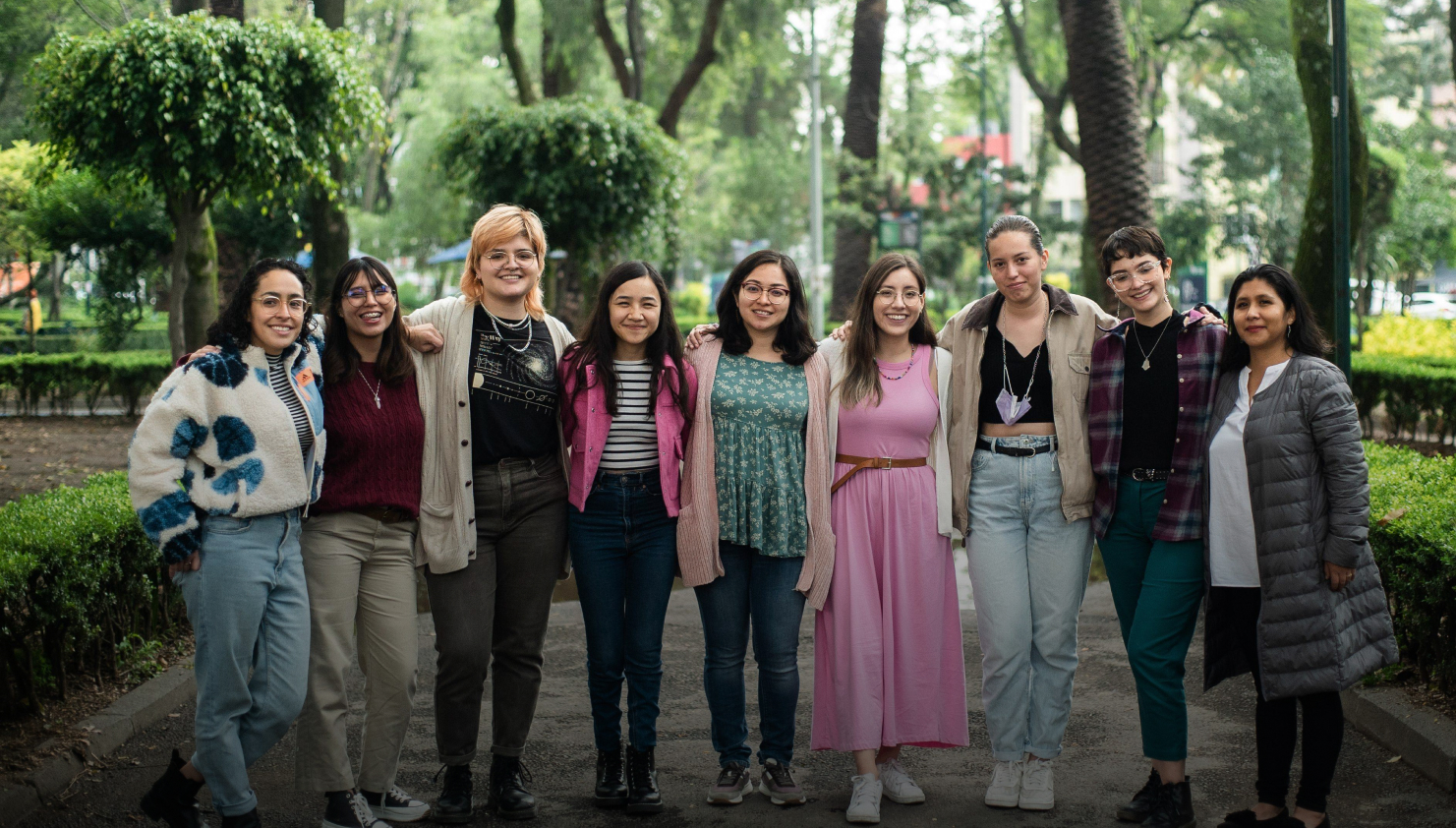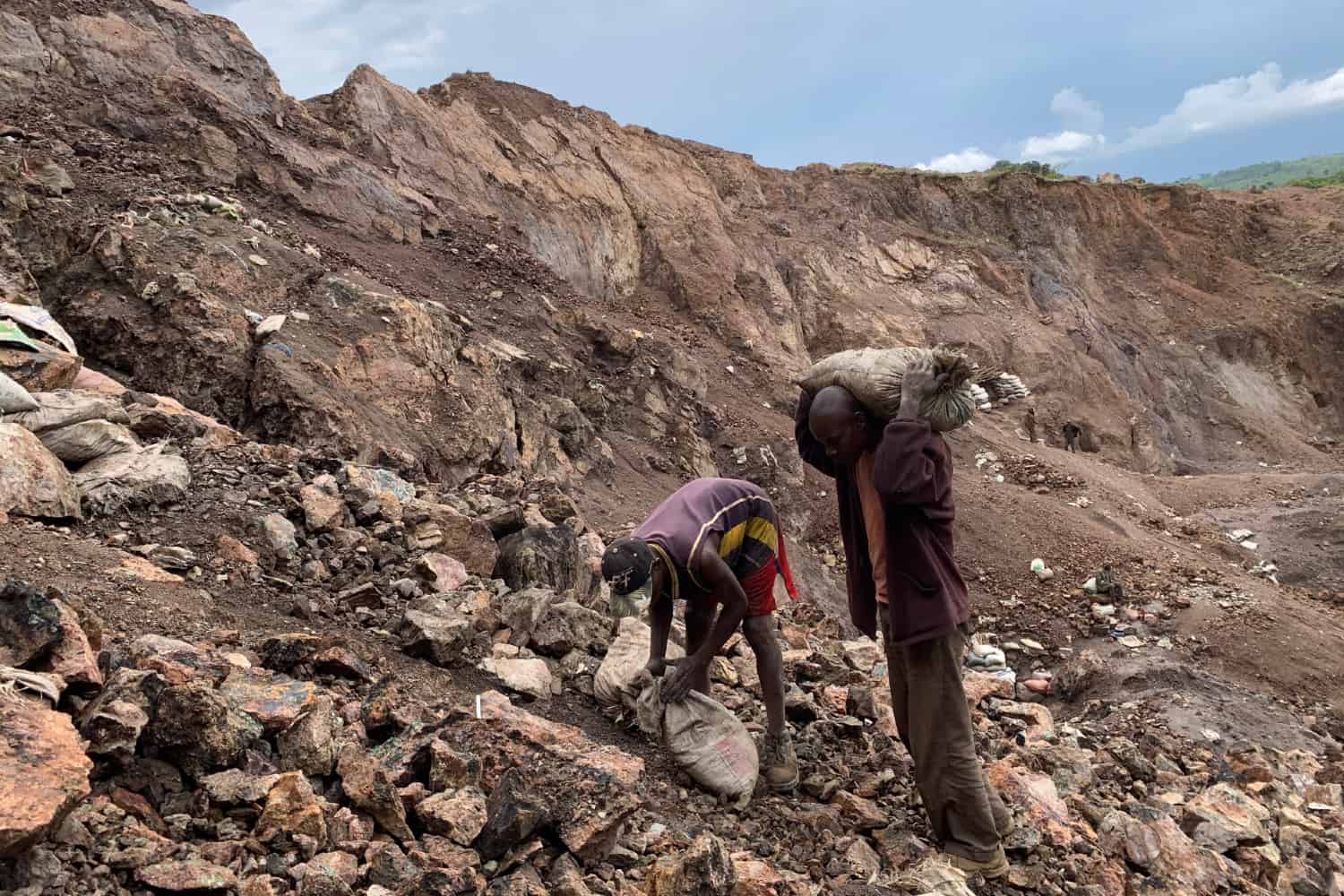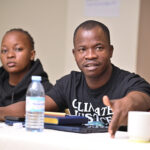75 years after the Universal Declaration of Human Rights was adopted, states are failing to live up to its historic challenge. Instead, Fund President and CEO Gabriela Bucher argues, grassroots activists are filling the gaps and delivering change in their communities.

Today, the idea of virtually every government in the world making common cause on any issue feels nearly inconceivable. For that broad agreement to be on human rights seems downright impossible.
For the architects of the 1948 Universal Declaration of Human Rights, the foundational document of the modern human rights movement, reaching such a consensus was a watershed moment in human history. The Universal Declaration sets out thirty fundamental rights that should be afforded to everyone based on the universal principles of dignity, equality, and freedom.
Seventy-five years on, it is plain to see that we are falling painfully short of the Universal Declaration’s historic challenge. Across the globe, many states have shifted toward authoritarianism—negating the promise of human rights in favor of centralized power, militarized security, and narrowly defined national interests. Others, including many of the world’s most powerful economies, may pay lip service to the ideals of universal rights, but the actions and decisions of state leaders simply do not match their rhetoric.
We are painfully reminded every day that international law is under immense strain. In the last two years, conflict-related deaths (including civilians) have soared to extreme highs. But the rolling back of fundamental rights isn’t limited to conflict zones or authoritarian regimes. Legislation cracking down on protest, limiting the rights of refugees, and stifling free expression has swept across the United States, the UK, and Europe. As the pace of technology advances and use of artificial intelligence becomes commonplace, states have an ever-increasing range of surveillance and recognition tools.
International human rights standards are being trampled at the peril of ordinary people. Yet, even as states continue to roll back their commitments to human rights, their citizens have other ideas. The Open Society Foundations have found that over 70 percent of people worldwide believe human rights align with their core values. A recent analysis of Google Trends by two political scientists showed that as human rights are attacked within countries, especially in the Global South, public interest in rights issues only grows.
We don’t need to look far to find examples of activists speaking out for their rights in recent years, from the Friday for Futures and Black Lives Matter movements in the United States and UK to the Mahsa Amini protests led by women in Iran. History shows us time and time again: when the people most impacted by human rights issues affecting their lives come together to push for change, progress is truly possible.
In September, Mexico decriminalized abortion across the entire country after years of community-led advocacy—part of the Green Wave movement that has swept across Latin America. More countries than ever before recognize the right to same-sex marriage, thanks to the tireless work of LGBTQ+ advocates and allies. And while governments’ action on climate continues to fall painfully short of the Paris commitments, local activists across the globe have led the way on calling for climate justice and taming extractive projects that threaten their right to a healthy environment.
Such activism takes many forms. It is culturally, politically, and strategically diverse. Many activists may not identify explicitly with the language of the Universal Declaration of Human Rights (although we find a large number across the world do). However movements for social justice choose to frame their cause, the spirit of the Universal Declaration—that all people have the right to dignity, equality, and freedom—is embodied in their work.
The basic principles of human rights haven’t changed, but the world around us has shifted dramatically. When the declaration was signed in 1948, there were only 58 members of the United Nations. Today, there are 193. Many remained under colonial or imperial rule, denied their cultural fundamental freedoms and self-determination, long after the ink dried on the declaration.
The violence of these colonial histories casts a long shadow. Many of the same subjugated populations continue to face the most extreme rights abuses, including poverty, state brutality, and the worst impacts of the climate crisis. In many such contexts, where the needs are greatest, those working for rights to be realized face growing repression and danger. At least 401 human rights defenders were killed in 2022, compared with 358 deaths in 2021.
The architects of the Universal Declaration believed that the state should be ultimately responsible for upholding human rights, and therefore that it would be governments who would lead the way on realizing them. They envisioned a modern state that would be able to guarantee support to its citizens through social security, safety, and access to justice. Instead, governments have deregulated the economy and let inequality soar, commodified public goods and military technologies, and pushed the planet’s natural resources towards its limits.
Despite these huge gaps left by government inaction, human rights defenders continue to find creative ways to bring about change in their communities and beyond. I am incredibly privileged to have met and championed so many over the last couple of decades.

In recent months, I have met activists from AFREWATCH, who are working strategically on the front lines of climate justice in the Democratic Republic of Congo. AFREWATCH monitors good governance of natural resources in one of the critical hotspots central to the global energy transition. The Fund supported their ambitious idea with seed funding and, over the last 10 years, AFREWATCH has grown into a monitoring system that is effecting real change in corporate accountability on mining for crucial minerals.
In Guatemala and Mexico, I was impressed by the creative ways in which critical thinking is spurring real change. In the podcast La Advertencia, activists from La Corriente del Golfo and Antifaz told the story of oppression, impunity, corruption, and pathways to political justice in Guatemala, giving voice to an alternative to the dominate narrative. These stories of change are inspiring. They plant the seeds for more bold action and the belief that change is possible.
These groups vary in their structure, their cultures, and their strategies. But they all share the resilience, courage, commitment, and vision to change the world. They also, sadly, share a lack of flexible financial resources and necessary political backing. As one activist from Defenders Coalition in Kenya said:
The advancement of human rights for the community … it’s critical, but only happens when the champions are well taken care of, or are given the respect and support that they deserve … I think it’s also our task to keep reconnecting with the public because it’s for the public good that human rights defenders should be able to operate and operate powerfully, but more importantly, with the level of respect that they deserve.
Ten years after the adoption of the Universal Declaration, Eleanor Roosevelt famously said that human rights begin in “small places, close to home.” These neighbourhoods, factories, and schools, she wrote, are “where every man, woman and child seeks equal justice, equal opportunity, equal dignity without discrimination.”
Today, as governments fail to live up to the Universal Declaration’s promise and potential, the next part of her quote rings even more true: “Unless these rights have meaning there, they have little meaning anywhere. Without concerned citizen action to uphold them close to home, we shall look in vain for progress in the larger world.”
The need for states to recommit to human rights is more urgent than ever. But when and where they have failed to meet the moment, it is ordinary people—personally impacted by these issues and fighting to change them—that still provides us with hope in the dark.
Sign up to our newsletter
Add some impact to your inbox.


